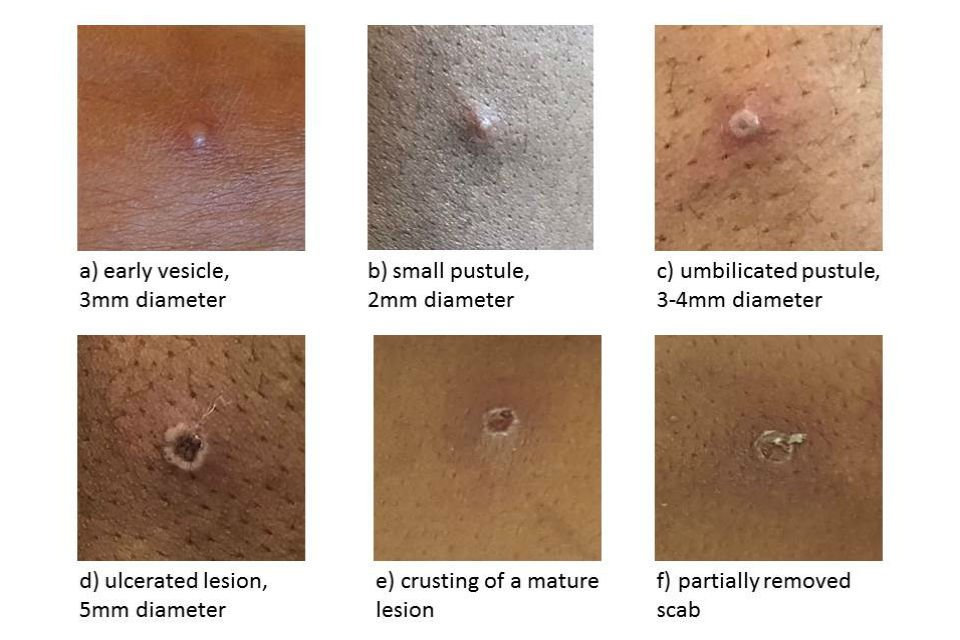Monkeypox
Monkeypox is caused by infection with the monkeypox virus. While it is not solely a sexually transmitted disease, it can be transmitted by sexual activity. If you develop a rash or become sick, do not continue to work and visit your medical provider immediately.
What is Monkeypox?
The monkeypox virus is a member of the family Poxviridae, which is related to the virus that causes smallpox and the cowpox virus. While similar, it is much less dangerous than smallpox.
Monkeypox is a zoonotic virus - originating from animals, specifically rodents.
Monkeypox has been around since 1958, with minimal outbreaks across central and west Africa, Europe, the United States and Canada.
What are the symptoms of monkeypox?
It is common to experience flu-like symptoms such as fever, aches, fatigue, and swollen lymph nodes.
A blistering rash (appearing as bumps, or lesions) develops with varied severity. The appearance can be varied, and might be mistaken for genital warts or herpes if located in the genital region.
The incubation period of monkeypox (the time between infection and the appearance of symptoms) is generally 7-21 days. If flu-like symptoms occur, a rash will normally appear 1-4 days after.
This illness usually lasts 2-4 weeks and is infectious at the onset of symptoms and until symptoms have resided.
It is possible to experience a rash or sores in the oral or genital area before other symptoms may present themselves.
Images of individual monkeypox rash and progression. Source: gov.uk
How is monkeypox transmitted?
Transmission of monkeypox usually requires a high dose of the virus, which is why it is was originally spread through animal bites. However, recent cases have shown that it can also be spread through physical contact, such as sex.
Sores and lesions from the virus carry and transmit the infection through skin-to-skin contact.
Touching items that have had contact with the virus, such as bedding or clothing, can transmit the virus. It is important to use effective cleaning agents such as bleach. For more information on cleaning agents, refer to our Monkeypox Production Guidelines.
Respiratory droplets are also capable of transmitting the virus, although you would need much greater exposure for transmission than COVID-19.
Monkeypox can be passed to a fetus through the placenta in pregnant individuals.
How is monkeypox treated?
As smallpox and monkeypox are related, well-researched treatments for smallpox are capable of being used to treat monkeypox.
There are two vaccines: JYNNEOS and ACAM2000, used to treat and prevent monkeypox. If there is a known exposure of monkeypox, vaccination during the incubation period can prevent development of symptoms and be used as post-exposure prophylaxis (PEP).
Antivirals such as cidofovir and brincidofovir can also be used as treatment.
If you have a known exposure to monkeypox, contact your medical provider.
Monkeypox Vaccines
Two vaccines have been FDA approved for monkeypox: JYNNEOS and ACAM2000.
To read more about the monkeypox vaccines and find resources in your area, visit our Monkeypox Vaccine page.
How common is monkeypox?
On May 20th, 2022, the WHO started an investigation of cases in the United States, U.K., Spain, Portugal, France, Canada, Sweden, and Italy.
The United States has currently reported 6,326 cases (August 3, 2022). To stay up to date on cases, visit the CDC Map & Case Count.
How is PASS protecting the adult industry from monkeypox?
PASS has created production guidelines that includes information on health monitoring, personal protective measures, and cleaning and disinfecting. Read our guidelines.
PASS is working with community health clinics in the Los Angeles area to distribute monkeypox vaccines to adult industry workers. If you are interested in receiving a vaccine, please fill out this form: https://hipaa.jotform.com/222015177393049
PASS is working with experts to stay up to date on monkeypox cases.
Stay informed via twitter @PassCertified, our newsletter, blog, and infections tracking page.
If you develop a rash or become sick, do not continue to work and visit your medical provider immediately. If you are diagnosed with monkeypox, please contact PASS for assistance in contact tracing.




